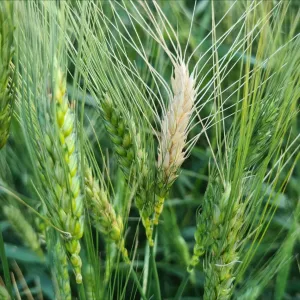Wheat blast spread globally under climate change modeled for the first time
Climate change poses a threat to yields and food security worldwide, with plant diseases as one of the main risks. An international team of researchers, surrounding professor Senthold Asseng from the Technical University of Munich (TUM), has now shown that further spread of the fungal disease wheat blast could reduce global wheat production by 13% until 2050. The result

Wheat blast spread globally under climate change modeled for the first time
Climate change poses a threat to yields and food security worldwide, with plant diseases as one of the main risks. An international team of researchers, surrounding professor Senthold Asseng from the Technical University of Munich (TUM), has now shown that further spread of the fungal disease wheat blast could reduce global wheat production by 13% until 2050. The result is dramatic for global food security.
With a global cultivation area of 222 million hectares and a harvest volume of 779 million tons, wheat is an essential food crop. Like all plant species, it is also struggling with diseases that are spreading more rapidly compared to a few years ago because of climate change. One of these is wheat blast. In warm and humid regions, the fungus magnaporthe oryzae has become a serious threat to wheat production since it was first observed in 1985. It initially spread from Brazil to neighboring countries. The first cases outside of South America occurred in Bangladesh in 2016 and in Zambia in 2018. Researchers from Germany, Mexico, Bangladesh, the United States, and Brazil have now modeled for the first time how wheat blast will spread in the future.

